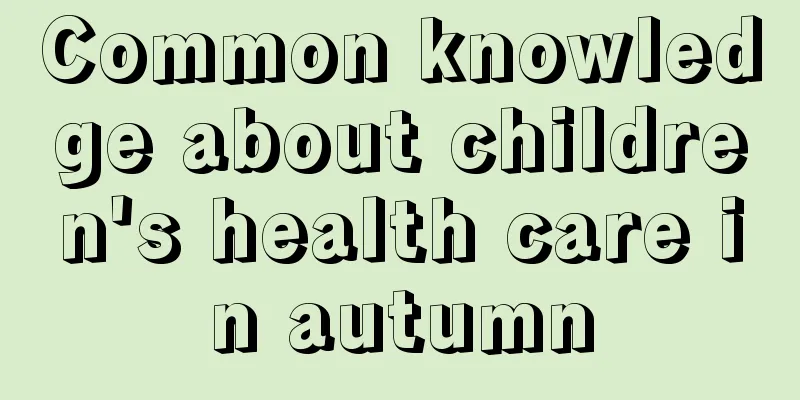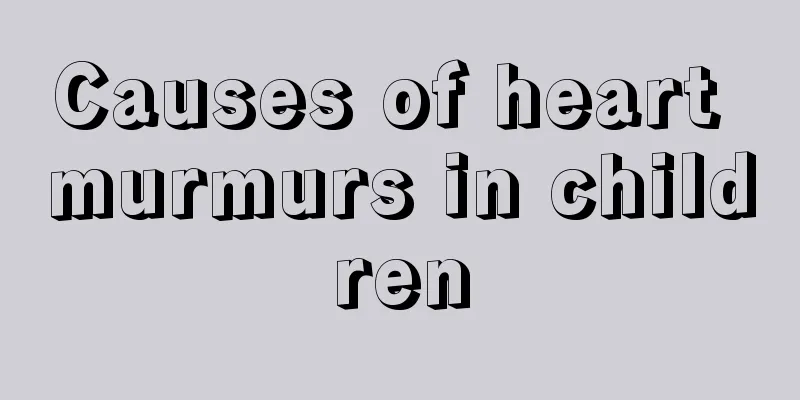What causes hunchback in children?

|
Although hunchback is a very common phenomenon, it is still ignored by some people. However, when family members see their children have hunchback problems, they are still very worried. After all, the children are still young. If they cannot develop normally, it will have a great impact and hinder them in the future. Therefore, it is necessary to understand the reasons for children's hunchback in time and take appropriate measures to correct and regulate it as soon as possible to solve the problem. 1. Congenital malformation of the spine. Some congenital spinal malformations have no obvious symptoms or signs and are only discovered during X-rays due to other diseases. This type of disease does not affect their life and work. Some people do not pay attention to it when they are young, but the symptoms worsen with age, causing back pain or neurological symptoms. This requires medical treatment. 2. Bone and joint tuberculosis. Hunchback caused by this disease was more common in the past, but has become less common in recent years. It often occurs in the lower thoracic or thoracolumbar segments, often involving multiple vertebrae. The course of the disease is long and lasts for a long time. Due to the destructive invasion of tuberculosis bacteria, the vertebrae are damaged, deformed and fused, causing kyphosis or scoliosis of the spine, forming an angular deformity - hunchback. At this time, it can only be corrected through surgery. 3. Ankylosing spondylitis. It is a unique disease of the connective tissue. The pathological basis of hunchback is: first, inflammatory reaction causes calcification and ossification of joints, synovium, ligaments, soft tissues, etc., resulting in stiffness and ankylosis; second, pain and stiffness lead to limited movement, and most joints are stiff, deformed, and flexed. This disease is more common in young men. Treatment is to control inflammation and relieve symptoms. Severe flexion deformity may require surgical correction. 4. Idiopathic scoliosis. This disease can also cause hunchback. It often occurs in young women. The cause of the disease is not very clear, and it may be related to nutritional deficiencies, genetic factors, muscle growth and development, and spinal growth disorders. In addition to the main convexity, the spine also has auxiliary convexity, which can cause a unique "S"-shaped hunchback. In the early stages of the disease, muscle training can be strengthened and corrective braces can be worn, while surgery is recommended in the late stages. 5. Juvenile hunchback. Also known as Scheuermann's disease, spondyloepiphysiitis, and spondyloosteocartilage disease, it is a developmental abnormality. Its characteristic is that the posterior convexity is gentle like a hill, so it is called "round back". The correction method is to sleep on a hard bed for half a year and strengthen the training of the waist and back muscles. As for the reasons for children's hunchback, the above introduction is very clear. Every family member needs to be responsible for the health of the child and let them develop good living habits from an early age. If the hunchback is caused by some disease, it is necessary to hurry to the hospital for examination, diagnosis and treatment, and do not delay. |
<<: What to do if a child has hunchback?
>>: Can nephrotic syndrome in children be cured?
Recommend
What to do if your child has severe influenza
In the cold winter, many parents don’t want their...
How to feed a child?
Mothers nowadays attach great importance to the f...
What should I do if my 5-month-old child has diarrhea?
When the baby is five months old, he can basicall...
Eight month old baby food schedule
Nowadays, many parents start feeding their childr...
What should I do if my baby has a runny nose and spit up milk? Parenting experts tell you the answer
Parents, please take note: if your baby has a run...
Intellectual development of 30-month-old baby
The intelligence of a thirty-month-old baby has b...
Children can't sleep well at night
If the baby has a good sleep, it is a great relie...
Causes and treatment of fever and convulsions in children
Children are very important to every family. Ther...
Child blowing bubbles
When a newborn baby is born, parents begin to tak...
What happened if the newborn baby hasn't pooped for 2 days?
9. Newborns sometimes do not have bowel movements...
What should I do if my child has a sore throat?
If a child's throat is sore, it means the sit...
What is the reason for green stool in children?
Children's feces are generally yellow, especi...
The child has pain in the sixth lumbar vertebra
Children are the treasures of their parents, and ...
Can calcium tablets help children grow taller?
Many parents are worried about their children'...
Can the mole on the corner of a child’s mouth be removed?
It is very common to have moles on the face. Both...









